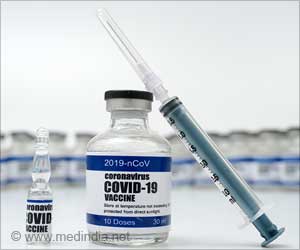- Fecal microbiota transplant (FMT) is a process of transferring fecal bacteria and microbes from a healthy person into the gastrointestinal tract of the patient
- It is particularly useful in refractory melanoma patients who have become resistant to anti-PD-1 drugs
- FMT along with re-induction of anti-PD-1 combination therapy is safe, effective, and feasible
Read More..
Researchers conducted the first in-human studies to analyze whether modifying the gut microbiome by a fecal microbiota transplant can make cancer immunotherapy more effective.
The study which analyzed ten cancer patients with refractory melanoma showed improvement in patient outcomes. Refractory melanoma is a type of melanoma that does not respond to treatment.
According to a Phase 1 clinical trial, a positive response was seen in three out of the ten patients enrolled in the study.
Even though there were some limitations, the authors revealed that the findings support the concept that they can overcome resistance to immunotherapy by modulating the gut microbiota.
Gut Microbiota Transplant
According to the pre-clinical mouse models and observational studies, one of the most promising methods to overcome resistance to PD-1 inhibitors (anti-PD-1) is by altering the gut microbiome.No specific class of bacteria has been associated with this response. In pre-clinical models, the transfer of entire gut microbiota from one host to another has shown promising results.
The microbiota for transplant was collected from one of two melanoma patients named ‘Donor 1’ and ‘Donor 2’ who had previously responded to anti-PD-1 therapy for at least one year. Following transplantation of FMT from Donor 1 or Donor 2, three out of the ten patients responded to anti-PD-1 treatment which was assessed by the decrease in tumor size. The three patients who responded to anti-PD-1 had received FMT from donor 1.
As the study was statically powered to evaluate the safety and not to compare efficiency between donors, the reason for the positive response of transplant from Donor 1 alone is not clear. Baruch and his colleagues have stated that the combination of FMT and re-induction of anti-PD-1 therapy is safe, potentially effective, and feasible.
Reference:
- Fecal microbiota transplant promotes response in immunotherapy-refractory melanoma patients: Erez N. Baruch et al: Science Dec(2020).DOI: 10.1126/science.abb5920
Source-Medindia
















